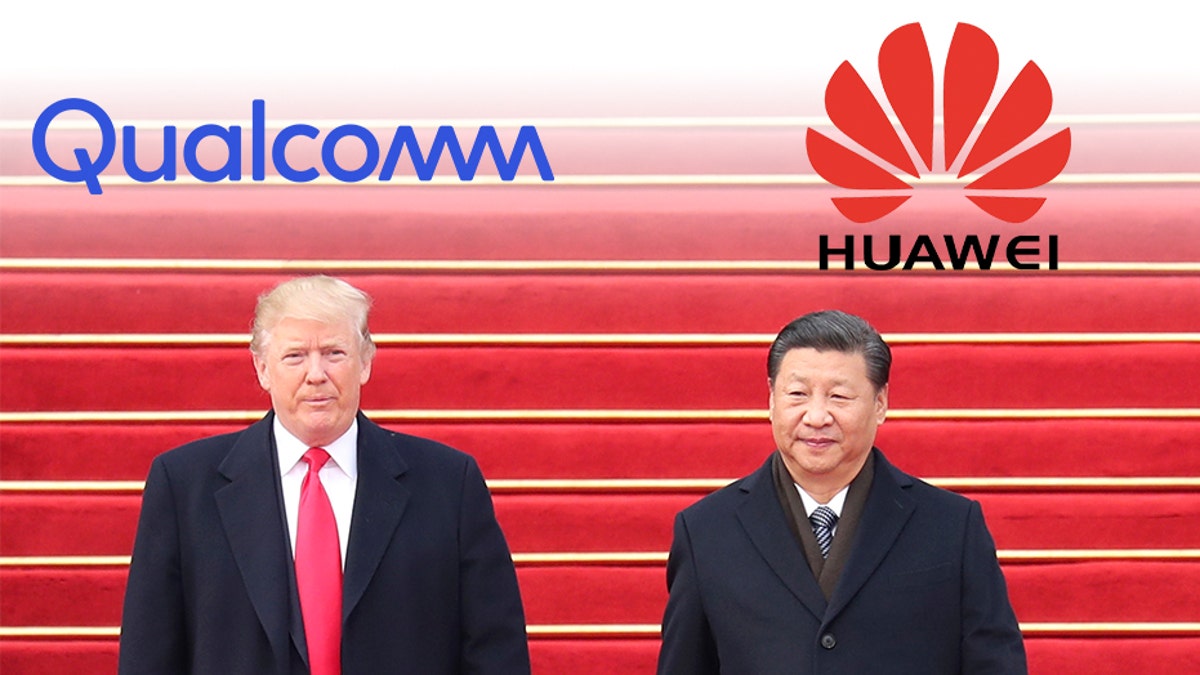
The infamous Huawei Technologies and another Chinese company, Lenovo Group, were the star witnesses for the Federal Trade Commission (FTC) on the first day of trial in its case against Qualcomm Inc., the San Diego-based technology giant. Beijing’s support for the FTC’s case shows that the Commission may be handing China global supremacy in telecommunications. If U.S. District Judge Lucy Koh of the Northern District of California rules against Qualcomm, she will effectively be conferring dominance of 5G wireless networks upon China.
Three days before the inauguration of President Donald Trump, the FTC brought its action against Qualcomm, alleging that the company used dominant market power in modem chips to charge royalties that were too high. The Commission likened “elevated royalties” to a “tax.”
The FTC’s theory, whatever its merits, is novel. Then FTC Commissioner Maureen Ohlhausen, in a stinging dissent to the decision to bring the case, pointed out that the Commission’s complaint “fails to allege that Qualcomm charges more than a reasonable royalty” and presents “no robust economic evidence of exclusion and anticompetitive effects.” She saw “an extraordinary situation” ... “an enforcement action based on a flawed legal theory” that “lacks economic and evidentiary support.”
In short, the FTC staff, which pushed the case, came up with a new theory because there was a lack of evidence of wrongdoing under traditional ones. Under the FTC’s new theory, the federal government would become a de facto price regulator setting mobile technology royalty rates.
And why do we care if the FTC has become overzealous? The Commission’s theory, by essentially introducing price control, attacks Qualcomm’s business model of using licensing revenue to fund innovation. The company reports it has invested $53 billion in research and development since 1985. “The FTC seems bent on derailing Qualcomm’s 5G innovation engine by going after its IP business,” writes Forbes contributor Patrick Moorhead. Qualcomm is indeed an idea factory, holding more than 130,000 patents and patent applications.
It was this concern – protecting Qualcomm’s innovation model – that led President Trump, in an unprecedented presidential order last March, to block Broadcom Ltd. from taking steps to acquire Qualcomm. The concern was that Broadcom, if it were successful in its $117 billion bid, would break Qualcomm into parts in order to realize locked-in shareholder value, and thus cripple its ability to compete with China in 5G.
Qualcomm’s ability to innovate has meant success for the company, which has been the world’s leader in 3G and 4G wireless communications. As experts say, if you have a mobile device in your pocket or purse, you’re carrying Qualcomm with you.
The company, as a practical matter, is the only American business that can lead the world in 5G – the next generation. “I can make a case that if Qualcomm’s 5G motivations were to wane, the U.S.’s ability to lead the world in 5G wanes,” writes Moorhead, the Forbes contributor. “Sure, there are other important, American companies engaged in 5G, but I believe none who can move the world as quickly and comprehensively and solve the biggest wireless problems as Qualcomm.”
It’s not surprising that the Chinese would want to undermine Qualcomm, but why does the FTC? Qualcomm is in a two-horse race with Huawei, and the Commission’s case is a gift to the Chinese company.
Yes, in the race for 5G, it’s either Qualcomm or Huawei, which has virtually unlimited support from the Chinese party-state. At the time of Broadcom’s bid for Qualcomm, Reuters reported that the Pentagon was concerned that, if Qualcomm fell out of the 5G race, in a decade, American telecommunication carriers would have no choice but to buy Huawei equipment.
And if they bought Huawei equipment, Beijing would be able to turn off a pacemaker in New York, make a driverless truck ram a playground in Nebraska, or force a drone to crash into a rock concert in California. And you can bet every wireless phone conversation would be monitored by the Chinese Ministry of State Security.
Of course, the FTC should give no company a pass for clearly anti-competitive behavior, and competition law, like other law, should evolve. Yet the Commission should not embrace new theories at a time like this in the 5G area. In this area, the national security of the United States, whether we like it or not, rests on the success of Qualcomm. Many may wonder how the U.S. ended up so dependent on one firm, but now is not the time to fix that problem.
There is one problem that does need fixing now, and that is the government’s long-held hostility to innovators. Governments like to regulate, and government regulators do not seem to understand that innovation, even if it is not industry-leading like Qualcomm’s, needs protection.
According to Ronald Cass, the dean emeritus of Boston University School of Law, the FTC is “trying to limit competition based on innovation.” Unfortunately, as he writes, U.S. government policies are “anchored in suspicion of success.”
The FTC’s case, by weaponizing antitrust law, is creating the conditions for other countries to mimic the attack – to take without compensation Qualcomm’s intellectual property. China and South Korea have already done so.
It’s not surprising that the Chinese would want to undermine Qualcomm, but why does the FTC? Qualcomm is in a two-horse race with Huawei, and the Commission’s case is a gift to the Chinese company.
CLICK HERE TO GET THE FOX NEWS APP
Moreover, the case is a gift to China’s industrial policies, especially its Made in China 2025 initiative. Beijing last January added 5G to the list of areas covered by that predatory program.
Now Beijing, astoundingly, has found an ally in the Federal Trade Commission. And perhaps a federal district judge in California.
